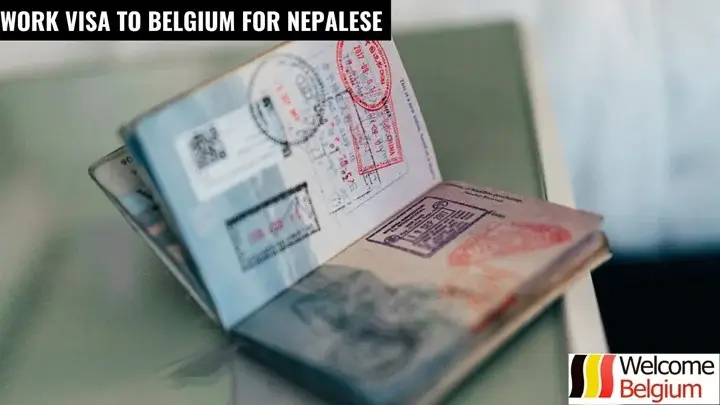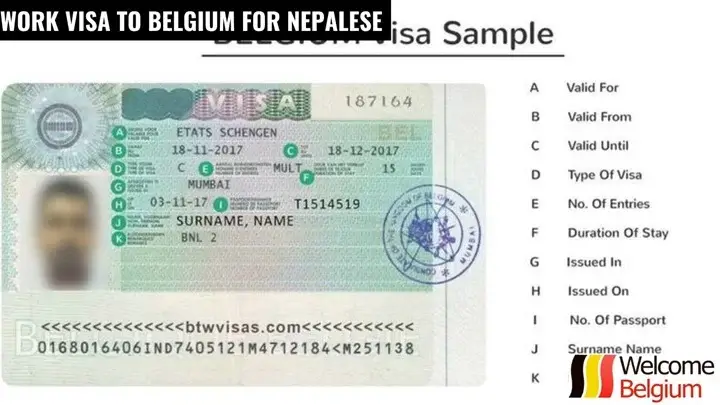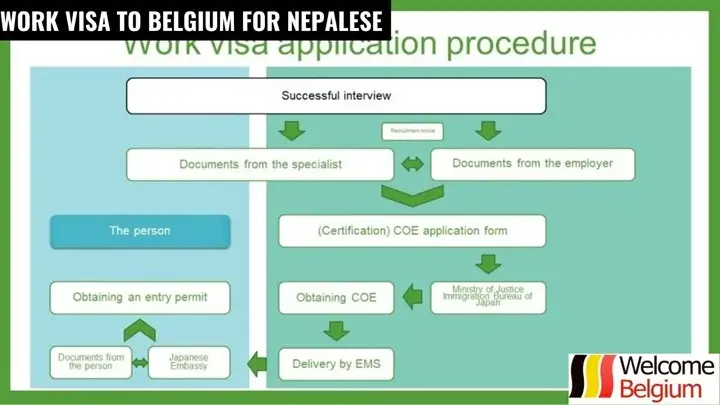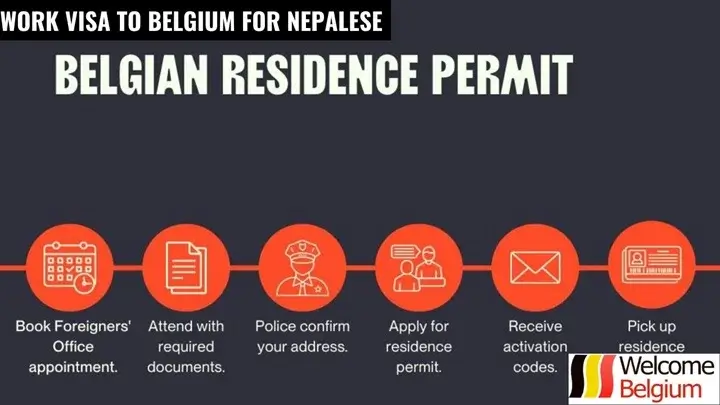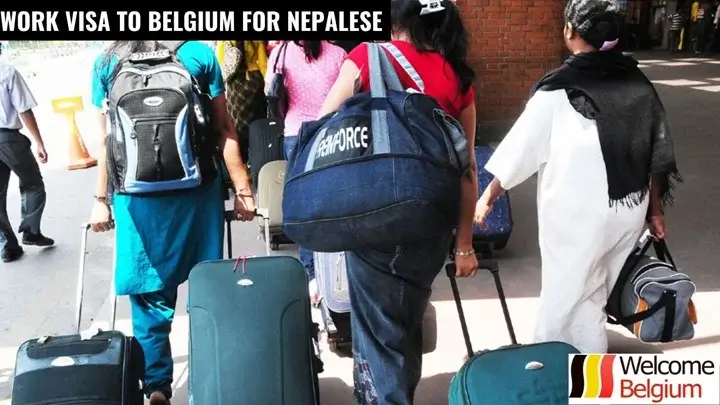Interest in labor migration from Nepal to Belgium is constantly growing due to a wide range of work opportunities in various industries. However, the process of obtaining a work visa requires careful consideration of all stages and documents. In this article, we will analyze how Nepalese citizens can apply for a work visa, what documents are required and what should be taken into account for successful processing.
About the Belgian work visa
For Nepalese, obtaining a work visa to Belgium opens up employment and career opportunities. The process, however, requires careful preparation of documents and compliance with all requirements. It is important to understand the types of visas that are suitable for your situation and what resources can help. Having a reliable employer makes the entire process much easier.
Types of work visas and useful information:
- Work visa category B. For work in a specific position. Requires the consent of the Belgian authorities. Validity: up to 12 months.
- Work visa category D. Suitable for long-term work. Often used by skilled workers. Requires diplomas confirming qualifications.
- European Blue Card. For highly qualified workers with degrees. Allows work in other EU countries. Salary threshold: over 55,000 euros per year.
- Temporary visa for seasonal work. Used for agriculture or tourism. Valid for up to 90 days.
- Business permit. For those planning to open a business in Belgium. It is necessary to justify the economic benefit for the country.
- Family unit. For family members if the main applicant already has a visa. Possibility to work and live together.
- The application must be submitted through the Belgian Consulate in Nepal.
- Diplomas and recommendations are suitable for confirming qualifications.
- Some types of visas require knowledge of one of the national languages of Belgium (French, Dutch or German).
The visa process for Nepalese residents requires the participation of the employer, who must apply for a work permit. This allows them to prove that the vacancy cannot be filled by EU residents. To simplify the process, contact the consulate or specialized agencies for assistance.
Advice:
It is recommended to study the specifics of the Belgian labour market in advance and choose the most suitable visa category.
Visa Requirements for Nepalese
For Nepalese citizens who want to work in Belgium, it is important to meet certain requirements set by the immigration laws. These rules help ensure the legality and safety of foreigners’ stay in the country. The main criteria include having an employment contract, proof of qualifications and financial stability. Let’s take a closer look at what exactly is needed to submit an application.
Requirements for obtaining a visa:
- Employment contract. Official invitation from a Belgian employer.
- Work permit. Issued by the employer in Belgium.
- Proof of qualifications. Diplomas, certificates or work experience relevant to the vacancy.
- Financial stability. Evidence of sufficient funds for living.
- Medical insurance covering the entire period of stay.
- Clean criminal record. Certificate of absence of criminal offenses.
If the applicant does not meet one of the requirements, it is important to consider possible alternatives. For example, it is possible to take additional training to improve the qualifications or to request assistance from the employer in preparing the necessary documents. Consultation with an immigration lawyer may also be useful in finding a solution.
Advice:
Some professions in Belgium are exempt from work permits, such as highly skilled professionals.
The process of applying for and obtaining a work visa
Getting started with the Belgium work visa process for Nepalese requires careful preparation. The first step is finding an employer who is willing to provide a contract and work permit. After that, you need to gather all the documents, including proof of financial solvency and medical certificates. This process can be complicated, but planning at each stage will help avoid delays.
List of stages for applying and receiving a visa:
- Job search. Write a professional CV. Contact potential employer in Belgium.
- Obtaining a work permit. The employer submits an application for a permit (type A, B or C) to the relevant regional authority. Fee for processing the permit (approximately €100-€200).
- Collection of documents. International passport, confirmation of employment contract, financial guarantees (€950 per month of residence), medical examination.
- Applying for a visa. Contact the Belgian consulate in Nepal, pay the visa fee (approx. €180).
- Passing the interview. Prepare for questions about work and purpose of stay.
- Waiting for and receiving a visa. Application review (4-8 weeks).
The main reasons for visa refusal are incomplete documents, errors in the application form or the absence of a real employment contract. It is important to carefully check all the data before applying. To increase your chances of successfully obtaining a visa, consult with an experienced lawyer or migration consultant.
Advice:
Employers in Belgium often cover part of the costs of a work visa if candidates meet their requirements.
Measures and rules after receiving a visa
After receiving a work visa to Belgium, Nepalese citizens must comply with a number of mandatory rules and regulations to avoid problems with their stay in the country. Compliance with these requirements guarantees not only the legality of their stay, but also comfortable living and working conditions. It is important to know all the details related to their stay in Belgium in advance to avoid unpleasant consequences.
List of mandatory measures and rules:
- Register with the local authorities. After arriving in Belgium, you must register with the local municipality within 8 working days. This is an important step to legalize your stay.
- Obtaining a Belgian identification number (Rijksregisternummer). This is a mandatory requirement for working and receiving social services in Belgium.
- Waiting for confirmation of the employment contract. It is necessary to make sure that the employment contract fully complies with the conditions of the work visa to avoid legal problems.
- Regular visa status checks. It is important to monitor the validity of your visa and promptly apply for an extension or change of status if necessary.
- Compliance with labor laws. The employer is obliged to provide working conditions in accordance with Belgian laws. Violations may affect the legality of the visa.
Failure to comply with these measures and rules may result in fines, visa cancellation or deportation. Therefore, it is important to follow all stages and deadlines to avoid unwanted consequences, live and work in Belgium without violations. Always consult with lawyers or immigration services for clarification.
Advice:
Timely visa extension and compliance with all regulations guarantees a stable stay in Belgium.
Problems and challenges faced by Nepalese
Nepalese wishing to work in Belgium face a number of problems and challenges, ranging from difficulties in obtaining a visa to cultural adaptation in a new country. These problems can complicate the integration process and the realization of labor rights. However, knowing about these difficulties in advance can minimize and successfully overcome them. In this section, we will look at the main difficulties Nepalese face and possible solutions.
List of problems and solutions:
- Lack of information about the visa process. Contacting specialists, using official sources of information and consultants.
- Language barrier. Language courses, preparation of documents in English or French.
- Cultural adaptation. Participation in communities, assistance from migration organizations.
- Low salaries and difficulties with employment. Obtaining qualifications, actively searching for work through agencies.
To avoid these problems, it is important to prepare thoroughly for migration, learn from the experiences of others and actively seek opportunities to integrate into Belgian society. This will help Nepalese not only to successfully obtain a work visa, but also to adapt to the new environment. It is important to remember that knowledge of the language and cultural characteristics will make life in a new country much easier.
Advice:
Plan your move in advance to avoid unnecessary difficulties during the paperwork and adaptation process.
Work Visa Prospects for 2025
There may be changes to the work visa rules for Nepalese citizens in 2025, as Belgium continues to adapt its immigration policy. These changes will involve a simplification of the permit process, as well as a possible expansion of the list of in-demand professions. It is important to keep an eye on the new rules to stay informed about possible benefits and conditions.
List of prospects for 2025 with description:
- Simplification of procedures: It is expected that simplified procedures will be introduced for work visas, including reduced processing times.
- Expanding the list of professions in demand. Possible introduction of additional categories of professions in demand on the Belgian labour market.
- Access to labor migration programs. Improvements are expected to be made to programs aimed at attracting workers from developing countries, including Nepal.
- Visa concessions for skilled workers. There are plans to introduce concessions for highly skilled workers, which could simplify the process of obtaining visas.
The year 2025 promises new opportunities for Nepalese citizens who want to work in Belgium. Changes in immigration policy could significantly simplify the process of obtaining work visas, expanding access to various professions. It is important to monitor new initiatives and prepare for possible changes in time.


